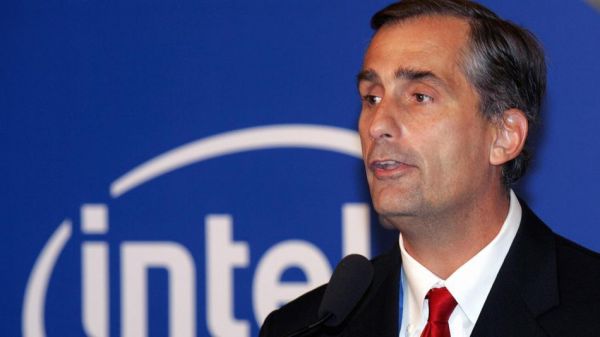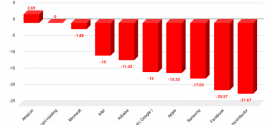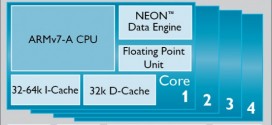About a week from now, Intel is going to have a new CEO, Brian Krzanich, which was their former COO, to replace the current CEO Paul Otellini. It seems to me Otellini is getting out at the right time, because Intel is going to have some major problems in the coming quarters and years, as the whole chip industry is about to become commoditized, thanks to ARM chips (good thing for consumers).
In the past few years, Intel has enjoyed a very profitable leadership position in the PC chip market, as they pushed AMD into a lower and lower market share. They managed to corner most PC manufacturers into using only their chips, and even to use their integrated GPU’s regardless of whether they decided to use a dedicated GPU or not. In fact, those that wanted only the CPU would have to pay such a high price, that they might as well go with the CPU/GPU combination from Intel.
As time passed, and Intel’s GPU’s became “good enough” for most people, PC OEM’s decided that maybe they don’t really need that extra dedicated GPU from Nvidia after all, and they only need to pay Intel. This is exactly what Intel wanted all along, and why they forced their way into the GPU market the way they did, by getting OEM’s to use their integrated GPU’s.
These tactics have led to Intel getting very high profits for their chips, but all of it may be about to end soon, as the “good enough” principle is going to work against them thanks to ARM chips, but it’s going to be 10x worse for them than it was for Nvidia and AMD, because there are 10x more ARM chip makers and competitors. Nvidia may actually have the last laugh with their Tegra line of chips in the end.
Perhaps this wouldn’t be such a problem if ARM chips stayed at a certain performance level, for “low-end” machines, but they increase in performance much faster than Intel’s chips every year, and the worst news for Intel is that they aren’t increasing in price. If we plot a trend a few years into the future, you could see how ARM chips should be good enough for just about any type of consumer computer, performance wise, and they should be good enough for most people, regardless of how much faster Intel chips get in the future.
It simply won’t matter. Consumers are already happy with their dual core ARM iPads and the iPad competitors, today, and they are typically much lower priced than the Intel-based machines. The rise of Android is also a major problem for Intel, because Android devices are completely independent of x86 chips, unlike Windows ones, which actually have an advantage over the the ARM-based Windows devices, when using x86 chips.
The price of ARM chips remaining the same as they rise in performance, is bad for Intel, because eventually you may just want to get that product with a high performance ARM chip, instead of a Core i5 machine, which has the same specs otherwise, but costs $200-$300 more (retail price of the product is usually 2-3x the price of components), simply because the Intel chip itself costs $150-$200 or so.
As I’ve talked about before, Intel’s biggest problem is not that it won’t be able to compete technically wise with ARM chips (although I haven’t really seen that yet, and could be years more before it does), but that the market moving to $20 chips, from $200 chips, is going to hurt their company a lot. First off, their company is built around high profit chips, and second, even if they somehow tried to adapt to a “volume” company, it would be very hard, because they don’t have only one competitor now.
I don’t have much faith that Intel’s new CEO, Brian Krzanich, will change things at Intel. To do that, they should’ve brought in an outsider. But not only did they use an insider, the board also voted for him unanimously, which is actually a bad sign, because it means this new CEO will apply the same old strategies of Intel. If he was an insider, but someone who disagreed with Otellini and the board, the vote wouldn’t have been unanimous.
Intel should be mostly fine in the next few quarters, but things should get really interesting starting next year, when there will be a flood of 64 bit ARMv8 server chips, that will also start eating Intel’s other cash cow, the server chip market.
 TechDomino
TechDomino



